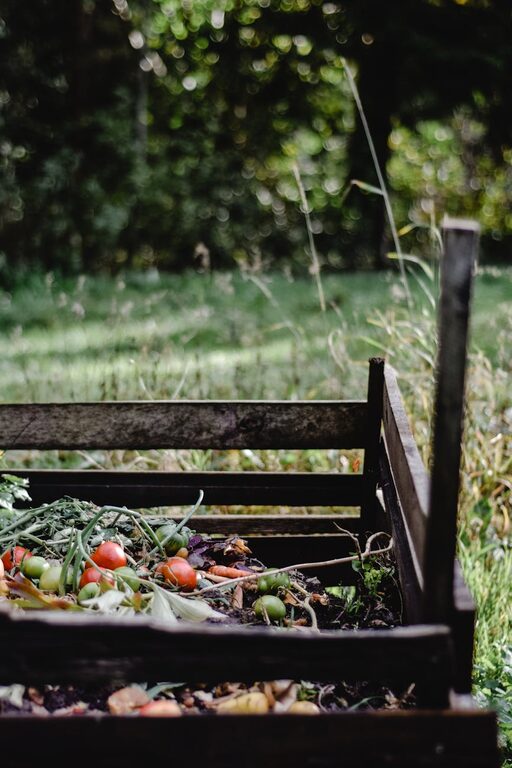
Composting at home is a wonderful way to reduce kitchen and yard waste while creating nutrient-rich soil for your garden. If you’re new to composting, the process might feel a bit overwhelming at first, but with the right tips and approach, it’s easy to start and maintain. This guide will walk you through beginner-friendly advice to help you compost successfully and enjoy the benefits of a greener lifestyle.
What Is Composting?
Composting is the natural process of recycling organic materials like food scraps and yard waste into a rich soil additive called compost. This compost improves soil structure, provides nutrients for plants, and reduces the amount of waste going to landfills.
Benefits of Composting at Home
– Reduces kitchen and yard waste
– Enriches garden soil naturally
– Cuts down on the need for chemical fertilizers
– Supports beneficial microorganisms
– Helps conserve water by improving soil retention
Getting Started: What You Need
Choose the Right Compost Bin
There are various types of compost bins you can use:
– Traditional bins: Simple containers with holes for airflow.
– Tumbler composters: Closed bins that rotate, speeding up the composting process.
– DIY bins: You can build one from wood pallets or wire mesh.
Pick a bin type based on your space and how involved you want to be. If you have a small backyard, a compact tumbler might be ideal. For larger spaces, a traditional bin works well.
Find a Good Location
Place your compost bin in a spot that:
– Gets some sunlight to help heat up the compost
– Has good drainage
– Is easily accessible for daily adding and turning
What Can You Compost?
Compostable Materials
– Green materials (nitrogen-rich):
– Fruit and vegetable scraps
– Coffee grounds and tea bags
– Grass clippings
– Plant trimmings
– Brown materials (carbon-rich):
– Dry leaves
– Straw or hay
– Cardboard and paper (shredded)
– Wood chips and sawdust (untreated)
Balancing green and brown materials helps the compost break down faster and avoids bad odors.
What Not to Compost
– Meat, dairy, and oily foods
– Pet waste
– Diseased plants or invasive weeds
– Coal or charcoal ash
– Synthetic materials like plastics or treated wood
Avoiding these ensures your compost stays healthy and safe.
How to Compost: Step-by-Step Guide
1. Collect Materials
Keep a small container in your kitchen to gather fruit and vegetable scraps throughout the day.
2. Layer Greens and Browns
When adding to the compost bin, layer green and brown materials. For example, start with a layer of brown leaves, add green scraps, then more browns on top. This layering helps with airflow and moisture balance.
3. Keep It Moist
Compost should feel like a wrung-out sponge – moist but not soggy. If it’s too dry, add water or green materials. Too wet? Add more brown materials and turn to introduce air.
4. Turn the Pile
Use a garden fork or shovel to turn your compost every 1-2 weeks. This aerates the pile and speeds up decomposition.
5. Be Patient
Composting takes time. Depending on conditions, your compost can be ready in 2-6 months. Finished compost is dark, crumbly, and smells earthy.
Troubleshooting Common Problems
| Problem | Cause | Solution |
|————————|——————————–|————————————|
| Compost smells bad | Too much green, too wet | Add more brown materials, turn pile |
| Compost is dry | Not enough moisture | Add water and green materials |
| Pests in the compost | Food scraps exposed | Bury scraps under brown materials |
| Compost too slow | Poor airflow or imbalance | Turn regularly and balance greens and browns |
Using Your Finished Compost
Once your compost looks and smells like rich soil, it’s ready to use. Spread it in your garden beds, mix it into potting soil, or use it as mulch around plants. Your flowers, vegetables, and lawn will thank you!
Additional Tips for Success
– Chop or shred larger scraps to speed decomposition.
– Avoid adding weeds that have seeds to prevent spreading unwanted plants.
– Consider vermicomposting with worms if you want a faster, indoor option.
– Keep a compost journal or app to track what you add and how it performs.
—
Composting at home is a rewarding way to reduce waste and enrich your garden naturally. By following these beginner tips, you’ll be well on your way to creating healthy soil that supports your plants and the environment.
Happy composting!
